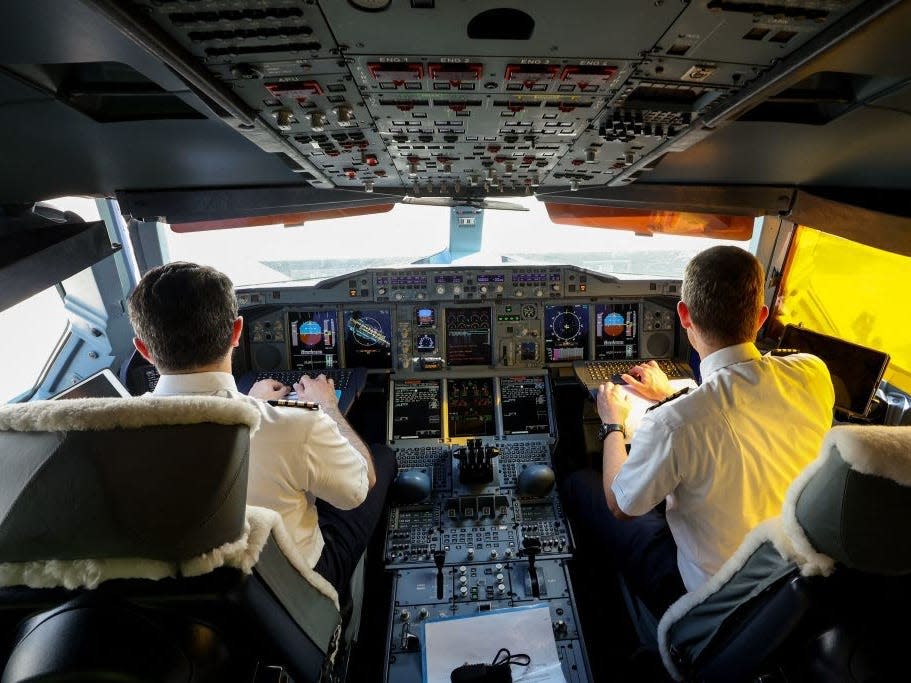A first officer fainted during a flight to Lisbon. It's a reminder why commercial airplanes should always have 2 pilots.

An easyJet first officer fainted during a flight from London to Lisbon on Saturday.
The captain landed the plane safely, highlighting the importance of the two-pilot rule.
Regulators and pilot unions oppose single-pilot operations, citing safety concerns.
Passengers don't usually get on a flight expecting their pilot to fall ill.
But on the rare occasion that it does happen, the two-pilot minimum rule means somebody can land the plane safely.
On Saturday, for example, an easyJet first officer fainted during a flight from London to Lisbon with nearly 200 passengers on board.
An airline spokesperson told Business Insider that the plane was "met by the paramedics upon landing due to a pilot feeling unwell."
"The captain landed the flight routinely in line with procedures and passengers disembarked normally," they said. "At no point was the safety of the flight compromised."
Mark Stephens, a retired Delta pilot, recently told BI that domestic or short-haul flights should have at least two pilots, while international or long-haul flights should have two pilots and two captains.
Safety in numbers
The incident on Saturday highlights the importance of having an additional pilot on board. Over the years, there have been reports of medical emergencies in midair, including sudden illnesses such as heart attacks or even death.
On these occasions, the remaining pilot or pilots should focus on diverting or landing the plane safely while the rest of the crew tends to the pilot who is injured or unwell.
In March 2023, a Southwest Airlines pilot had stomach pains and became "incapacitated" during a flight from Las Vegas to Columbus, Ohio.
A pilot from another airline who was on board as a passenger stepped in to help the remaining Southwest pilot land the plane, the outlet said.
The concept of single-pilot operations has been debated and criticized by regulators and pilot unions in Europe and the US.
Reuters reported in February 2023 that the European Union Aviation Safety Agency rejected an industry push to allow planes to be operated by one pilot by 2030.
Andrea Boiardi, chief expert of operational suitability at the regulator, told Reuters at the time that the idea of a single-pilot flight was "absolutely not realistic."
While single-pilot flights can take place, it is rare and would require approval from the United Nations' International Civil Aviation Organization, individual airlines, and their pilot unions, Reuters said.
Read the original article on Business Insider

